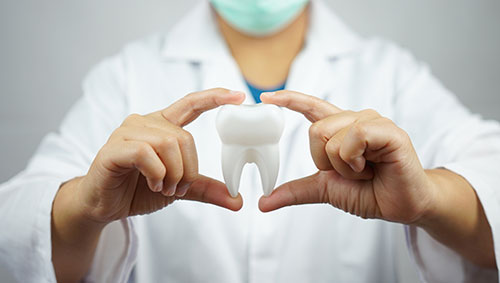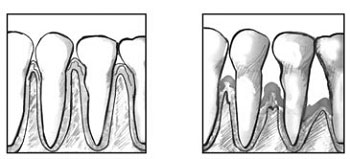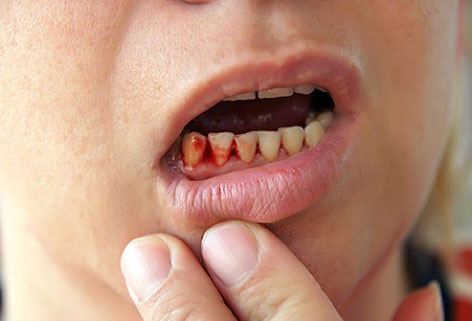Diabetes, Gum Disease & Other Dental Problems
Does diabetes (high sugar level in blood) affect gums and teeth? This is a question every patient suffering from diabetes has.
Yes, definitely is the answer. Elevated sugar levels in the blood can interact with the saliva in the mouth and cause various infections which can affect all parts of the mouth including the teeth, gums, jaw, tongue, the cheeks’ interior and the palate of the mouth.

Increased glucose in blood and saliva can increase the chances of developing plaque or tartar (soft or hard coating in between and on the surface of teeth, particularly in attached gum and teeth). In severe cases, under the gum, the plaque and tartar accumulate and gum disease will progress with eating away of the underlying bone.
What Happens If Plaque Is Not Removed in Time, Especially in Diabetes?
It is imperative that the plaque be removed as otherwise it will accumulate above the gums. This will make brushing ineffective; the gums will also suffer inflammation and bleeding. This inflammation and bleeding are symptoms of a gum condition called gingivitis. If left untreated, gingivitis can lead to periodontitis wherein gaps form between the gums and teeth. These gaps can then get infected with bacteria.
This infection is more common in diabetes due to low immunity status and local sugar availability at the site of infection. Once the infection reaches the bone below the gums, our teeth will start losing support to hold them in place and eventually become loose.
It is vital that timely treatment be given to those with periodontitis as otherwise the gums, bones and teeth will suffer damage. Extraction of teeth might become a necessity. If you suspect periodontitis, it is crucial to get it checked by a periodontist immediately.

How Do I Know I Have Dental Problems from Diabetes?
Due to Bacteria
– Red swollen, bleeding gums (remember, healthy gums do not bleed)
– Bad breath
– Pus from gums
– Developing small spaces between teeth which were not there earlier
– Mild mobility or loosening of teeth
– Too much plaque development on the surface of teeth
– Pain from gums and teeth
– Change in biting of teeth position
Due to Candida Infection (Fungus)
– Burning sensation in the mouth
– White coating on tongue, red skin inside the mouth like in cheeks and roof of mouth
Xerostomia (Dry Mouth)
In severe diabetes, lack of saliva production can lead to easy gum disease, cavities in teeth and burning sensation in the tongue and the inside of the cheeks. Mouth sores, cracking of lips and difficulty in swallowing and speech can also happen due to diabetes.
Dos and Don’ts in Diabetes
DO This If You Are Diabetic:
- Do inform your dentist positively about diabetic status to make sure he gives appropriate guidance and diabetic gum care advice and treatment.
- Do not avoid going to the dentist thinking that all will be fine once diabetes is controlled.
- Regular 6 monthly check-ups with dentist are important.
- Ask your dentist to check for any new cavities, gum pockets and fungus infection.
- Routinely clean and sanitize your removable denture if you are wearing one.
- Get gum cleaning done regularly to keep your gums and teeth healthy.
- Do use a standard brush and paste at least once a day with warm salt water gargle.
- Gargle after every meal and sticky food and juice intake.
- Don’t stop brushing thinking that you are losing blood (it will only lead to more problems).
- Inform your dentist about the medication you take and don’t stop drugs by yourself without advice from dentist or physician.
- If possible, get a blood sugar test done before going to a dentist for better planning and management of gum and teeth problems.
- Follow the dentist advice correctly for full dental treatment to start with which may include expert periodontist opinion.
- Antiseptic mouthwash, flossing and water jet treatment home therapy may improve your gum health further apart from dental cleaning.
- It is better to keep the gum and teeth condition perfect before heart surgeries, eye surgeries and artificial joint replacements as dental bacteria can act like a reservoir and infection may reach and spread to the operation sites after surgery.
Don’ts:
- Never neglect bleeding gums.
- Don’t use unhealthy tooth picks and metal objects to clean in between teeth which may lead to a serious infection in diabetes.
- Don’t stop any drug by yourself thinking that it is not important for dental treatment.
- Don’t prescribe any drugs for yourself and buy directly from medical shops.
Smoking and Diabetes and Dental Issues

Smoking and diabetes is a dangerous mix for diabetes as it may worsen dental and gum disease. Many medical conditions have been reported with this cocktail including increased heart problems, stroke and hypertension.
After dental treatment, both together can delay healing of operation sites and gum healing due to reduced immunity and blood circulation shrinkage in smoking and diabetes.
Common Myths:
- Regular teeth cleaning by dentists will never produce healing problems in diabetes, rather it will only improve the health of gums and teeth.
- Not brushing properly in gum disease will reduce blood loss – in fact it will only make the gum disease worse.
- There is no relationship between gum disease and diabetes – actually, dental and gum disease can act like a focus of infection and lead to various medical issues of heart, eyes, joints and skin.

Dr. Manikandan Ramanathan
Consultant Maxillofacial Surgeon
Kauvery Hospital, Chennai

